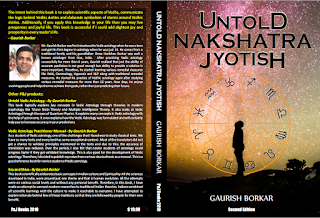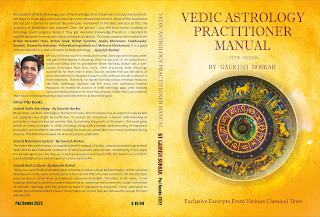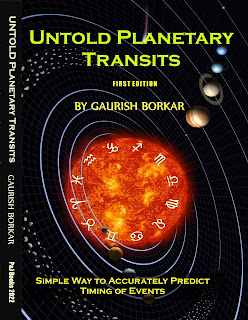Math is fun and enjoyment with Vedic math
One of my friends
introduced me to Vedic math in 1993 when I was in school. As he was elder than
me, he was certain that it is helpful, as it had helped him during his school
days. Since my school days, I am in love with Vedic math. It has helped me
during my school and until now. Recently, one of my friends discussed with me
challenges of kids at school. One of the major challenges was math. While
discussing, I realized that Vedic math is a solution to their challenges.
What is Vedic math?
Vedic math is a very
different way of doing math. This method is simpler and easier than prevalent
methods. It is much faster and more suitable for mental math. Vedic math mainly
cover algebra and arithmetic. Vedic arithmetic is developed on algebraic
principles. Naturally, it is applicable in coordinate geometry and matrices.
This method has many advantages. One of the advantages is that you do not need
to learn algebra separately as it is just an extension of what you already
apply in arithmetic. Even methods in Vedic algebra are different from prevalent
methods. Entire Vedic math is based on 16 main Sutras or formulae.
Uniqueness of Vedic
math
Many methods in Vedic math are unique and they
were not known to modern math. Let us learn uniqueness of Vedic math
- Only 16 sutras or formulae cover all the
methods.
- Vedic math methods are integrated as a
system
- Vedic math methods are more suitable for
mental math.
- Vedic math methods are simple and they
are interrelated to each other.
- Vedic math methods are 2 to 5 times
faster than traditional methods.
Advantages of Vedic
math
- Simple mental methods that enhance
mathematical intelligence
- 2 to 5 times faster methods useful in
solving sums quickly and correctly
- Quick for learning as same methods are
used in different branches of math.
History of Vedic
Math
Math has been a part of Vedic literature. Even
though timing of Vedas is not known, historians predict that they were authored
sometime between 500 BC to 1500 BC or even earlier. Shri Bharathi Krushna
Tirthaji reinvented methods in Vedic math. He was a brilliant student and
obtained honors in all the subject he studied i.e. Sanskruth, Philosophy,
English, Mathematics, History and Science. Between 1911 and 1918, he
reconstructed ancient system of mathematics i.e. now called Vedic mathematics.
Bharathi Krushna wrote 16 books expanding 16 formulae but those were lost. In
1958, Bharathi Krushna authored a book called Vedic Mathematics.
How Vedic math is
different from Abacus?
This is a very common question and many parents are curious about it. Abacus
is so popular now days that many people ask this question to me. It is
important to understand that Abacus requires a tool i.e. counting frame. Such
tools are not allowed in any exam or cannot be used in daily life. Abacus is
useful only arithmetic. Vedic math is a completely new way of doing math. Vedic
math is mental and very fast as compared to other techniques. Therefore,
side-by-side comparison of Vedic math and Abacus is practically impossible.
Still if you want to compare, below is quick summary.
No.
|
Abacus
|
Vedic math
|
1
|
Requires a tool
|
Mostly mental or can be
done on paper
|
2
|
Limited to 4 basic
mathematical operations
|
Covers arithmetic,
fractions, algebra, coordinate geometry and much more
|
3
|
Requires time similar
to prevalent methods
|
Very fast as compared
to prevalent methods
|
4
|
Helpful in teaching
basic concepts
|
Helpful in basic
concepts as well as useful in daily applications
|
Note: I am not an abacus expert so if you think
this section needs correction kindly communicate it to me.
Is Vedic math
recognized outside India?
Short answer of this question is yes. Vedic
math have been appreciated across the globe. Special sessions have been
arranged in well know universities like Stanford and Oxford on this topic.
There are schools in UK who do not teach traditional math but teach only Vedic
math. Foreign authors have written many books on Vedic math. Western
mathematicians are also researching how Vedic techniques can be applied in
areas like trigonometry and Calculus.
Why shall I learn
Vedic math?
1.
It increases interest in mathematics, as the methods are very easy as
compared to traditional math.
2.
It enhances mathematical intelligence, as these techniques are mental
techniques.
3.
If you have ever learnt math in traditional way then it is fun to learn
how easy math can be.
4.
It helps you to check your answers.
5.
No need to remember mathematical tables beyond 5.
6.
Most of the formulae are similar for all branches of mathematics so no need
to learn new techniques for advanced math.
Why Vedic math is
not taught in schools?
There are schools outside India that are
teaching Vedic math in school. In India, it is not being taught and even I am
surprised by this. Some people ask me how Vedic math can help in school. At
least, Vedic math helps to check answers. It also helps in quick calculations.
Remembering times tables above 5 is not required if you know Vedic math. Few
kids are afraid of large numbers and Vedic math eliminates this fear. It also
helps in exams where time is critical.
Many people ask me if kids will be confused between school math and
Vedic math. My observation is quite different. Kids exactly know what to apply
where and they have been using appropriate techniques at right place. Some
parents are only interested in school grades of their kids and they reject
anything outside school syllabus. This is their personal choice. Learning
multiple ways of doing same thing is a required for our evolution. It is
similar to listening to multiple viewpoints and choosing what you think is
appropriate.
As you are reading this book, you are already interested in learning
Vedic math; let us start learning Vedic math without investing much time in
such discussions. Math is fun and Vedic math is enjoyment.
Fill the registration form here, call 7719926102 or email: gaurishb@gmail.com as more questions come to your mind.
Related Links


Fill the registration form here, call 7719926102 or email: gaurishb@gmail.com as more questions come to your mind.
Related Links








Comments
Post a Comment